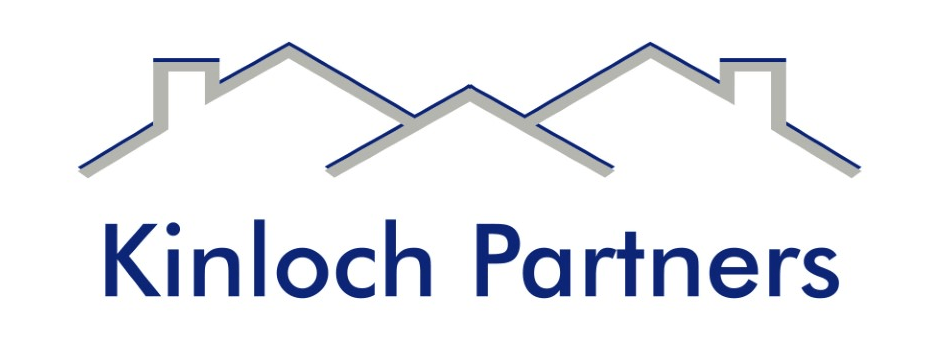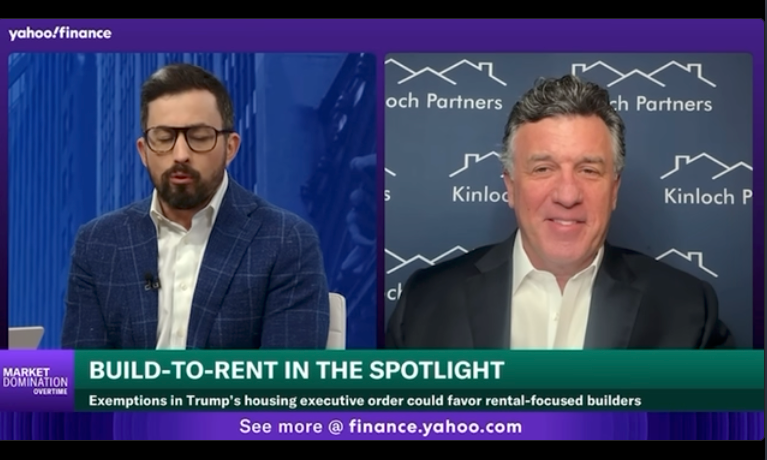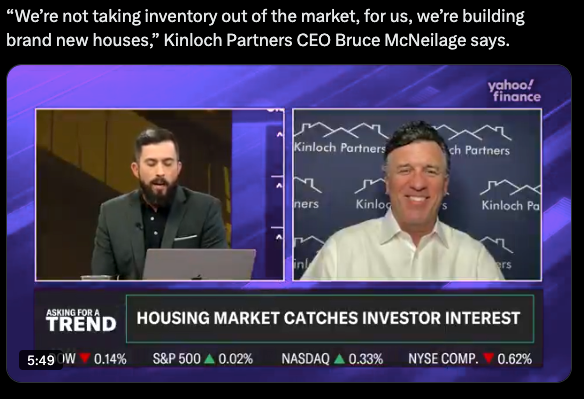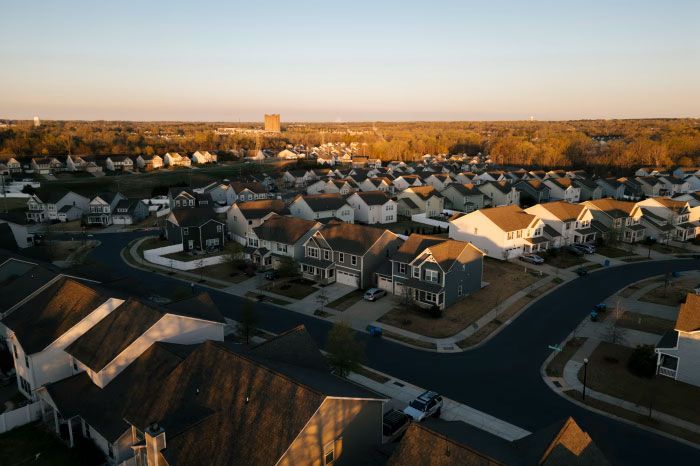Affordable housing experts: Nashville must talk less, do more
Nashville is growing and changing fast, and the nation has taken notice. In this series we will discuss the effects of growth on housing and the future of Nashville. Michael Schwab / USA Today Network – Tennessee
We asked several influential people who work in or research housing issues to weigh in on what steps Nashville must take next to address the affordability crisis.
Bruce W. McNeilage
“Nashville’s blessing is also Nashville’s curse. If first responders, nurses, teachers and single mothers cannot find affordable housing in our city, what will they do? We must have public-private partnerships where Metro works with developers and property owners to solve this problem.”
Bruce W. McNeilage, Kinloch Partners, Kinloch Homes, Harpeth Development, Cumberland Real Estate Development
Richard Florida
“It is essential Nashville’s city leaders — from the business, public sector, nonprofit and academic communities — address its growing new urban crisis. With the federal and most state governments out of the picture, it’s up to local leaders and local anchor institutions to lead the shift to more inclusive prosperity — by investing in more affordable housing, working to upgrade low-wage precarious service jobs, and investing in essential public goods like housing.”
Richard Florida, professor, University of Toronto, and author of “The New Urban Crisis” and “The Creative Class.”
Read More: Is Nashville in an urban crisis?
Ralph M. Perrey
“In recent years, Nashville’s population has grown 8.1 percent while its housing supply has grown only 5.0 percent. This gap will continue to push housing costs higher unless we build more housing — houses affordable to first-time buyers and rental housing for low- and moderate-income households. To do so, we need to educate our community about what ‘affordable housing’ looks like in Tennessee and who lives there.
“Apartment buildings developed with THDA financing look like any other private development. You likely drive by one every day without knowing it’s restricted to people who earn no more than 60 percent of the area’s median income, which is over $13 per hour in Davidson County. Living there are teacher’s aides, medical techs, bank tellers and other people with quality jobs important to our local economy. Overcoming misperceptions about these properties and their residents is vital if we are to build the housing our fast-growing community needs.”
Ralph M. Perrey, executive director, Tennessee Housing Development Agency
Read More: A dilemma for renters in Nashville
Kaitlin Dastugue
“As the cost to construct new housing units in Nashville continues to rise, we need to think resourcefully about cost-effective ways to address housing affordability holistically.
“For example, making small but significant home improvements that aim to reduce a homeowner’s energy bills by $400 over the course of a year could serve to offset the cost of that homeowner’s increased property taxes for the year.
“We need to continue to get creative about addressing the problem from every possible angle and looking at all the various factors that make living in Nashville affordable.”
Kaitlin Dastugue, executive director, Rebuilding Together Nashville
James Fraser
“The city needs to approve a general obligation bond for the better part of $1 billion in order to fund a land bank and community land trust that will, in tandem, purchase and develop over 30,000 parcels of property to be permanent affordable housing.
“Without taking property ‘off the market’ and creating a community-based real estate model we will not achieve equity in Nashville. To date, the city’s efforts to move the needle on affordable living have been offset by real estate investment groups who have one driving motivation, return on investment.
“The private real estate sector views property and housing in terms of its exchange value on the market, not its use value for people. Friedrich Engels, in his 1872 essay on the Housing Question, wrote about this long ago: ‘Capital does not desire to abolish the housing shortage even if it could; this has now been completely established. There remain, therefore, only two other expedients, self-help on the part of workers and state assistance.’
“Today we need bold action towards funding, building, preserving and retaining housing for all Nashvillians regardless of income and wealth. A city for people is possible if we embrace the community option toward urban development.”
James Fraser, associate professor and Robert Penn Warren Fellow, Vanderbilt University
Judith Tackett
“The systems and policies at the national, state and local levels are failing our neighbors who experience or are at immediate risk of homelessness. To end homelessness, we must prioritize access to housing for the most vulnerable people, remove barriers, and link people with the appropriate level of support services. To be clear, homelessness can only end if we have available low-income, low-barrier housing units.
“An immediate next step is to implement coordinated entry and assessment for people experiencing a dire housing crisis. At the same time, we need to develop a coordinated exit from homelessness strategy with dedicated low-barrier housing units.
“I would like to call on landlords to please accept housing choice vouchers and work with the Metropolitan Homelessness Commission to house people through our community’s coordinated entry system. This is the first step to assisting people in dire need as we continue to build our city’s Housing Crisis Resolution System.”
Judith Tackett, director of the Metropolitan Homelessness Commission
Eddie Latimer
“We have to stop allowing our affordable units to be lost without any effort to save them. This will take resolve and determination, and these two traits have not been shown in the public or private arena.
“In 2015 and 2016 we lost over 5,000 affordable homes and apartment units whose rents were under $750 per month. We are losing ground, not gaining.
“Housing policy, plans, strategy and new funding continue to get moved around as a priority, and now housing is placed in the transit agenda. It needs to be its own policy and priority with experienced housing people involved in shaping its agenda.
“The Barnes Fund is working. So let’s fund it at higher levels.
“It’s hard to build ‘affordable’ in this booming market with its rising costs (materials, land and labor) and too few subs. We need to think outside the box.”
Eddie Latimer, CEO, Affordable Housing Resources Inc.
Read More: The costs of growth and change in Nashville
Charles Strobel
“Before Nashville became Music City, it was known as the Athens of the South. The ancient people of Athens had a saying: ‘Other cities make better products, but we make better humans.’
“Today, our challenge as citizens is the same as the people of Athens. One way to make better humans is to produce enough affordable housing — market rate, workforce and low income — so that everyone will experience the humanizing energy of living indoors, instead of languishing on the streets like the animals.”
Charles Strobel, founding director, Room in the Inn
Rusty Lawrence
“Affordable housing is now a crisis in Nashville. We are losing affordable apartments and houses in every way possible — tear-downs, apartment complex sales, land development. It’s getting harder and harder to be poor in Nashville. Those with limited resources are being pushed to the periphery, causing more and more traffic on the highways into town. What to do?
“Three things:
- Create a social investment fund whereby companies needing affordable housing for their employees can make a social impact investment and expect a small return;
- Provide an ample city tax incentive to for-profit developers and nonprofits alike to encourage development of affordable housing; and
- Provide a loan guarantee program that insures for-profit and nonprofit developers that wish to create affordable housing but are unable to justify the risk involved.
“These three policies could go a long way toward incentivizing the development of more and more affordable housing.”
Rusty Lawrence, executive director, Urban Housing Solutions
John Stern
“Homes and neighborhoods are the glue that holds the health of our city together. While mine is but a short footnote in the tale of our county’s evolution, I believe that the efforts of your and my neighborhood have supported the collective efforts of communities in other neighborhood groups and their leadership.
“Today, I am optimistic that our community will enlarge the invaluable source of charity, education, aid and protection. Neighbors who have elected to come together as groups of action-oriented Nashvillians have increased in numbers, intelligence and ability to elect neighborhood-friendly officials.
“It is these dedicated, hardworking group of neighbors and those that choose to represent them who have put their lives on hold to represent you and all our families. Now this is a new day for neighborhoods — they are represented, as a whole, by elected officials that care, first, about you and not those from whom they used to conduct their bidding. Your hard work has come to fruition.”
John Stern, chairman emeritus, Nashville Neighborhood Alliance Inc.
Laura Berlind
“Housing affordability is a great example of how social, economic and physical environments influence our health and well-being. Research shows clear connections between unaffordable housing and poorer health status, food insecurity and lower spending on medical care.
“By definition, families and individuals who spend more of their incomes on housing have less money for food, health care, transportation, clothing and other needs. The financial strain of high housing costs is also a source of stress that can negatively affect our physical and mental health. Whatever approach one prefers to the affordable housing question, we can all agree that a healthier Tennessee is a more prosperous Tennessee.”
Laura Berlind, executive director of the Nashville-based Sycamore Institute











